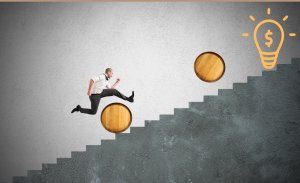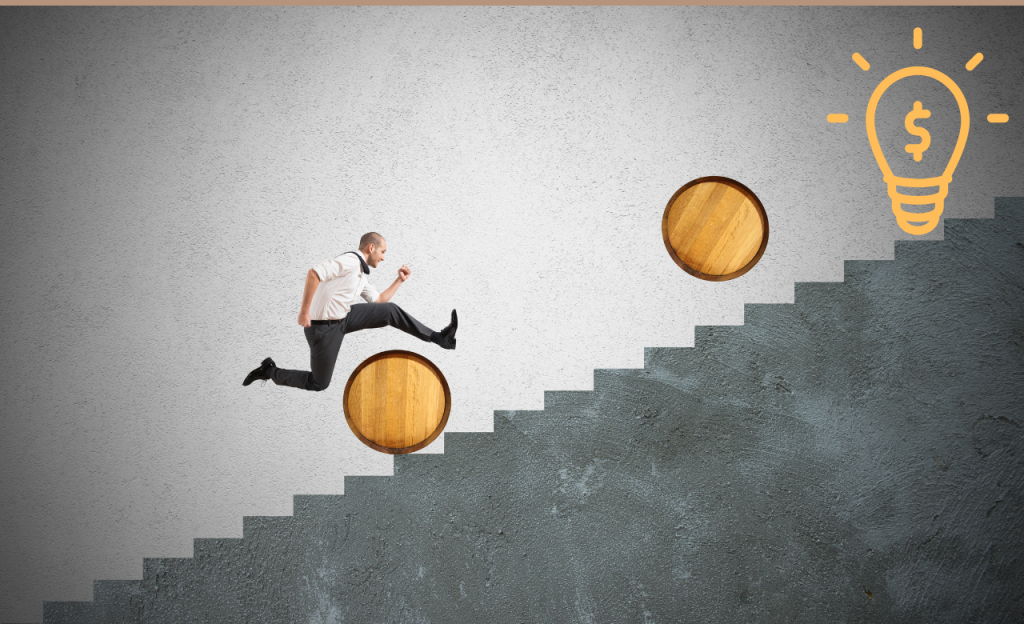All failure is failure to adapt, all success is successful adaptation. ~Max McKeown

The above quote is a powerful one. It reminds me of Jimmy Cliff’s popular hit “You can get it if you really want”. Being optimistic cannot prevent obstacles from popping up every now and then. There will be tough times in life and business. Not even the scriptures promise a smooth ride. But the good news is that you can control the course you take through your actions and your ability to believe. Remember the popular saying by Jimmy Dean; “I can’t change the direction of the wind, but I can adjust my sails to always reach my destination.”
Adapting to a challenge may come in various forms but two things often determine what you can do.
- If it’s a challenge that needs an immediate response then you have a decision to make. My approach to this is usually to decide immediately based on instinct. This is informed by the philosophy that indecision is worse than a wrong decision.
- If you have some time to decide then you may have to step away for a short period to brainstorm some concrete alternatives that could potentially pave the way. I must emphasize here that more often than not we concentrate on trying out some new methods. That’s fine but sometimes you might want to consider improving, improvising on techniques you are already good at. They may not provide the complete solution but a breakthrough or advancement, and that works!
There are key elements that will help you successfully adapt to a challenge. You have to be flexible, resourceful and resilient.
Flexibility is also important. If you are unable to leave your comfort zone the chances are that the problems you encounter will be more difficult to solve. For instance, if you have a flat tyre on a deserted road where there is no network you instinctively get to work. You don’t need a seer to know the dangers of rueing a flat tyre in such a place when you can just roll up your sleeves and replace it with a spare. Be ready to step out of your comfort zone.
I have a friend who is very resourceful. He is rarely bothered by problems that pop up in the course of normal daily activities. I can say his anxiety level is zero. If the car breaks down he will check the bonnet first before calling a technician. If there is a power outage he brings his flashlight to check the fusebox before calling the energy company. Of course, we all do not possess the basic knowledge to even do some of these things but the point is that anxiety is checked when you begin to think of alternatives.
Resilience is digging in. If you learn not to view any challenge as the end of the world then you have made a good start. You need patience and courage to keep pushing, even if you have to completely navigate another course. When you are done you can reframe the setbacks as learning experiences.
The last couple of years presents a good picture of how to we can collectively adapt to sudden challenges. A popular example often cited in the corporate world today is Uber. The ridesharing business was seriously hit by travel restrictions during the COVID-19 pandemic, but it adapted to the challenge through its secondary business Uber Eats. While Uber lost over $3bn and laid off about 15% of its workforce during the outbreak, the delivery arm thrived with bookings rising by 54%, as those in lockdown looked to deliveries for food and groceries.
So internalise the key elements. Resourcefulness, Flexiblity and Resilience. They not only help to keep away negative thoughts or emotions when you encounter sudden problems but also give you greater confidence and pliability to cope as you climb up the ladder of success.
If you enjoyed this, please share it and hit the follow button to join our community of digital creatives at cmonionline.com let’s grow together.
If you wish to emigrate or collaborate, send an email to admin@cmonionline.com let’s work together.
Thanks for reading.






